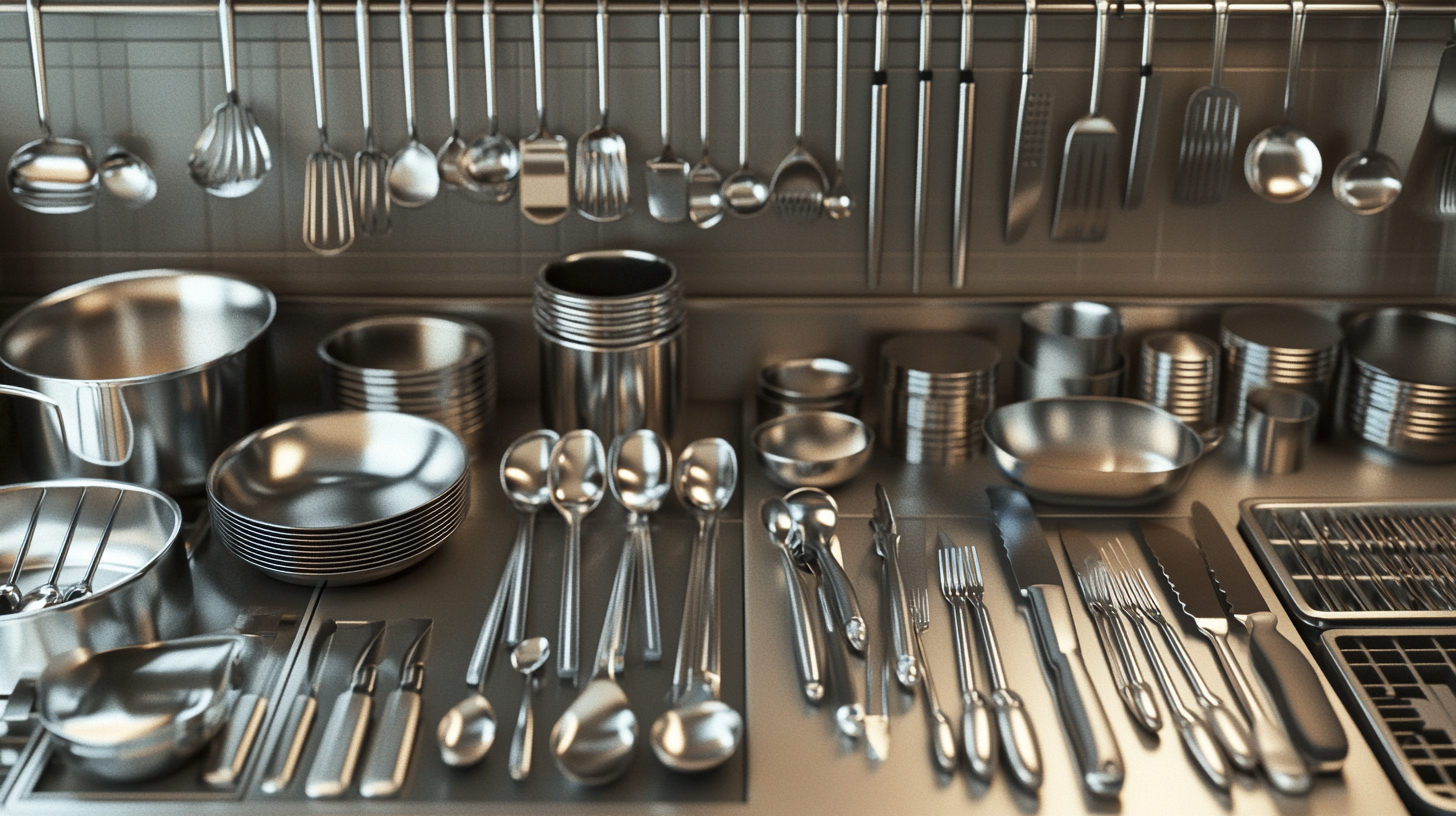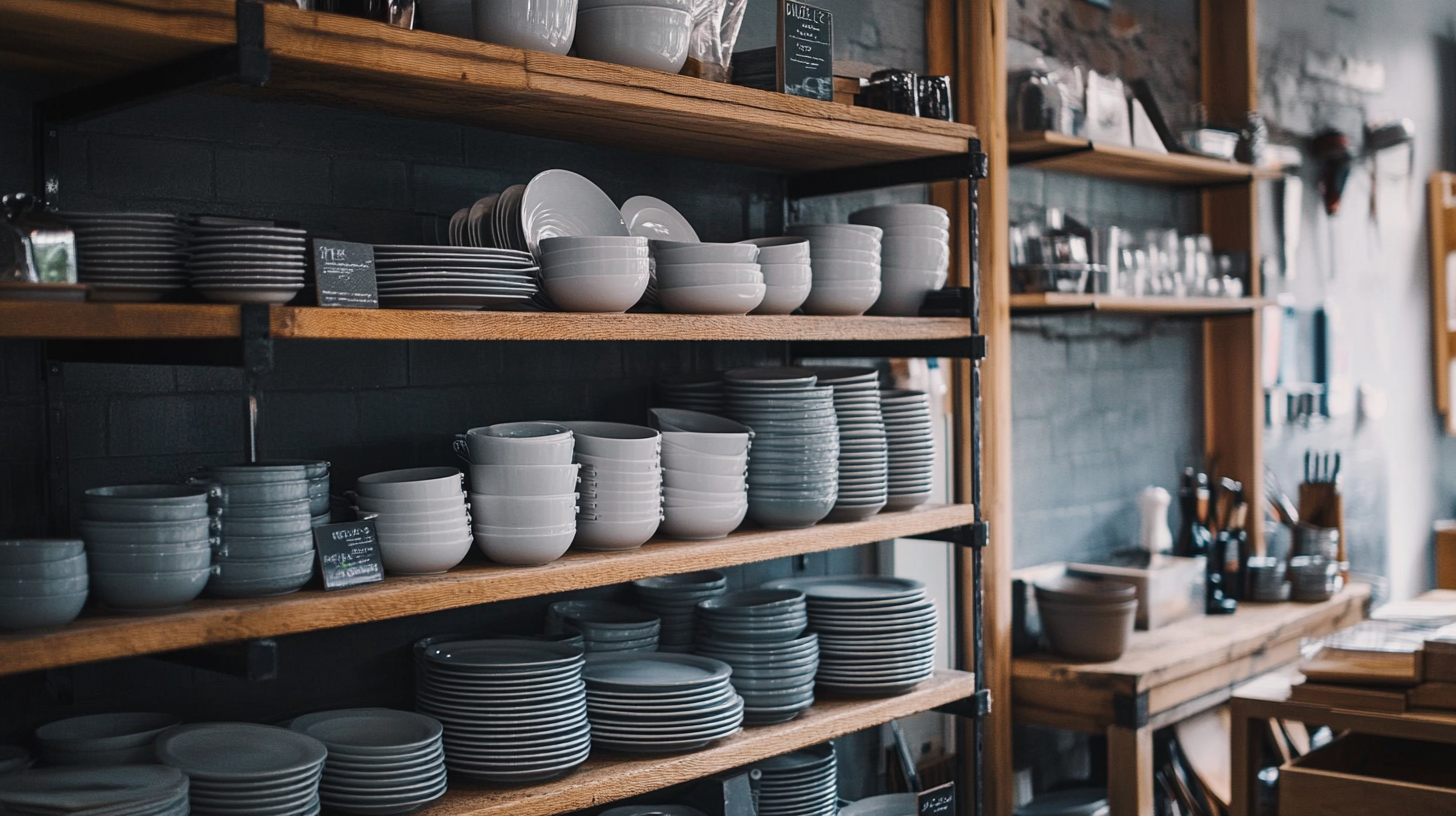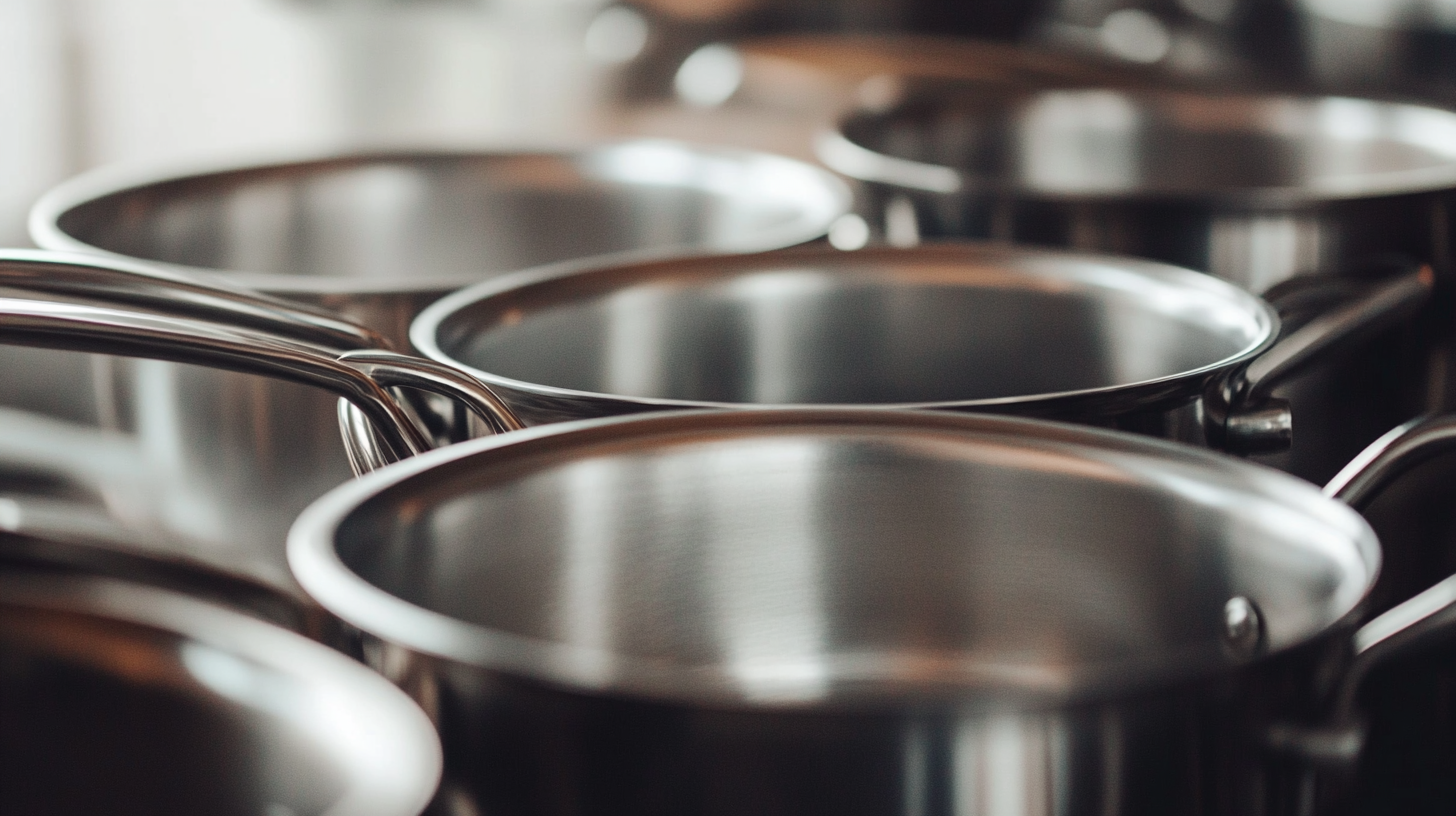The Definitive Handbook to Sourcing Quality Commercial Kitchen Ware for Your Business
The hospitality industry is experiencing a significant surge, with the global commercial kitchen ware market expected to reach USD 28.76 billion by 2025, growing at a CAGR of 4.4% from 2019 to 2025. As restaurants, hotels, and catering services invest in high-quality equipment to ensure efficiency and excellence in food preparation, the demand for commercial kitchen ware continues to rise. However, sourcing top-notch kitchen ware is not merely about aesthetics or brand recognition; it involves balancing durability, safety, and functionality to meet the diverse needs of culinary professionals. In this comprehensive handbook, we will explore essential strategies for sourcing quality commercial kitchen ware tailored for your business. By leveraging industry insights and expert recommendations, you can enhance your kitchen setup, optimize operational performance, and ultimately create delightful dining experiences for your customers.

Understanding the Importance of Quality Kitchen Ware for Your Business Success
Quality kitchen ware is a cornerstone in the success of any commercial kitchen. Whether you operate a bustling restaurant or a small café, the tools and equipment you use can significantly impact your efficiency, food quality, and overall customer satisfaction. Investing in high-quality kitchen ware not only enhances the cooking experience for your staff but also ensures consistency in the dishes served, which is crucial for building a loyal customer base.
Moreover, the right kitchen equipment can lead to substantial long-term savings. Durable, well-crafted items reduce the need for frequent replacements and repairs, allowing your business to operate smoothly without unexpected costs. High-quality kitchen ware can also improve food safety and sanitation, which are critical considerations in maintaining a positive brand image. By prioritizing quality in your kitchen supplies, you are ultimately investing in the reputation and longevity of your culinary venture.
Key Features to Look for When Sourcing Commercial Kitchen Equipment
When sourcing quality commercial kitchen equipment, it's vital to focus on key features that ensure longevity, efficiency, and safety. According to a report by IBISWorld, the commercial kitchen equipment manufacturing industry has grown significantly, with revenue reaching $9 billion in 2022. This indicates a strong demand for reliable equipment, and businesses must prioritize durability. Stainless steel and heavy-duty construction are essential traits to look for, as these materials not only withstand the rigors of a busy kitchen but also offer ease of cleaning and sanitation compliance.
Another crucial aspect to consider is energy efficiency. The U.S. Department of Energy noted that commercial kitchens can consume up to five times more energy than other types of businesses. Therefore, investing in Energy Star certified appliances can lead to significant cost savings and contribute to sustainable operations. Additionally, ensure that the equipment you choose meets local safety standards, which can prevent accidents and protect your investment in the long run. Features like temperature controls, safety switches, and ergonomics should also be evaluated to enhance the overall functionality of the kitchen setup.

Evaluating Suppliers: How to Choose the Right Vendor for Your Kitchen Needs
When it comes to sourcing quality commercial kitchenware, choosing the right vendor can significantly impact your business operations and profitability. A recent report by IBISWorld notes that the commercial cooking equipment manufacturing industry has seen consistent growth, reaching a revenue of approximately $3 billion in 2023. This highlights the importance of establishing relationships with reliable suppliers who can deliver high-quality products that meet industry standards.
Evaluating potential suppliers involves several crucial factors. First, consider the supplier's reputation within the industry. A study by the National Restaurant Association indicates that almost 78% of restaurateurs cite supplier reliability as a top priority. This underlines the necessity of checking reviews, requesting references, and assessing the supplier’s history in terms of product quality and service reliability. Furthermore, understanding the supplier’s product range can help ensure that they can meet your specific needs, whether it's sustainable materials, compliance with health regulations, or innovative designs.
Price is another critical aspect, but it should not be the sole deciding factor. According to research from the Foodservice Equipment & Supplies magazine, quality kitchenware can save businesses up to 20% in operational costs due to reduced maintenance and replacement frequency. Therefore, investing in quality from a trusted supplier can yield long-term savings and enhance your kitchen's efficiency. Evaluate potential vendors not just on cost but on the overall value they bring to your business.
Cost vs. Quality: Making Informed Decisions for Your Kitchen Investment
When it comes to equipping your commercial kitchen, the balance between cost and quality is critical. While attractive, lower-priced kitchen appliances may seem appealing at first, they often lack the performance and durability needed for a professional environment. According to industry reports, the longevity and efficiency of high-quality kitchenware can ultimately save businesses money in the long run. Investing in quality often leads to reduced maintenance costs and less frequent replacements, aligning with the concept that you ultimately get what you pay for.
Recent trends indicate that many chefs are reevaluating their kitchen essentials. In a recent analysis, it was highlighted that numerous standard kitchen appliances may not justify their space or expense, with suggestions for more versatile or essential equipment leading to better kitchen dynamics. A burgeoning trend is the rise of premium cookware brands that have been acclaimed by industry professionals, reinforcing the idea that discerning chefs should prioritize quality over quantity in their kitchen toolsets.
As the catering equipment industry adapts to post-Covid demands, the focus on sourcing high-quality kitchen gear is more pronounced than ever. Suppliers are noticing a shift in customer priorities, with a clear demand for sustainable, reliable, and efficient kitchen solutions that deliver real value. Investing in quality kitchenware not only supports culinary excellence but also ensures that businesses are equipped to thrive in a competitive landscape.

Sustainability in Kitchen Ware: Why Eco-Friendly Options Matter for Your Brand
Sustainability has shifted from being a mere "nice-to-have" attribute in consumer products to a fundamental expectation that can define brand loyalty. As businesses seek to align with the growing demands for eco-friendly options, it’s essential to recognize the impact of sustainable kitchen ware. Consumers today are increasingly concerned about the environmental impact of their purchases, and incorporating sustainable practices can not only enhance a brand’s image but also attract environmentally conscious customers.
Incorporating eco-friendly kitchen ware into your business model goes beyond merely choosing biodegradable materials; it involves a holistic approach to sourcing. This can encompass everything from utilizing renewable resources to selecting suppliers that engage in ethical practices. Brands that innovate in sustainability not only contribute positively to the environment but also create a compelling narrative that resonates with consumers, paving the way for more significant market differentiation.
As we move toward 2025, the demand for sustainable kitchen products will likely increase, presenting a great opportunity for businesses willing to invest in eco-friendly solutions. By proactively adopting sustainable practices and showcasing their commitment, companies can build deeper connections with their customers while contributing to a greener planet.
